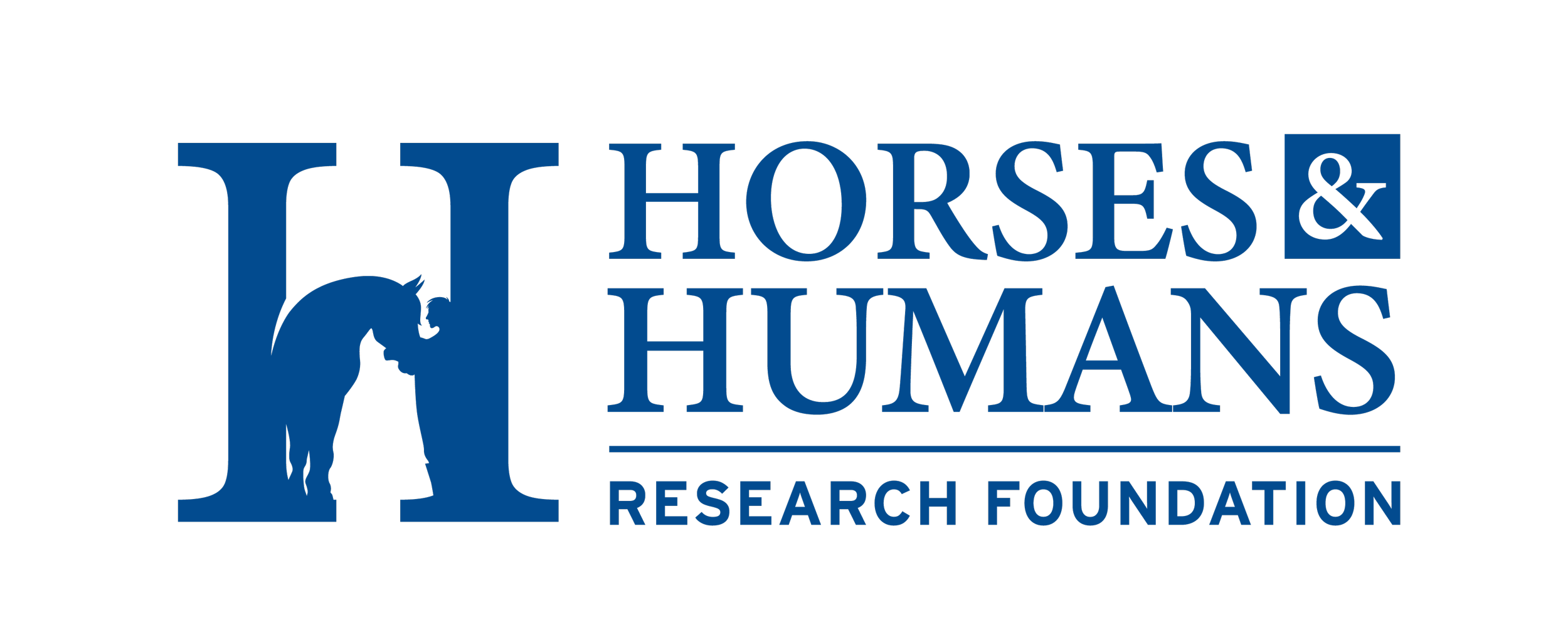HHRF’s First Focused Research Initiative Commits to Helping Veterans
HHRF’s First Focused Research Initiative Commits to Helping Veterans
At HHRF we are dedicated to quality research. Our goal is to provide empirical evidence of the impact of horses on humans and vice versa. To date, we have funded ten (10) studies on a broad range of. In our May 2016 newsletter, we announced the creation of Focused Research Initiatives (FRI) to assist us in identifying and pursuing specific areas of research interest. Our goal is to create several FRIs which bring together experts including practitioners, researchers, policy makers and potential funders focused on specific content areas.
Our first FRI will concentrate on Veterans with Traumatic Brain Injury/Post- Traumatic Stress. The program was led by HHRF Board Vice President, Larry Pence, and included experts focused on Veterans services. The Veterans FRI team includes:
- Mary Jo Beckman – CPEAP, Loudoun Therapeutic Alison Boyrer – UC Denver & STEPS Foundation Dr. Phyllis Erdman – Washington State University Dr. Beth Lanning – Baylor University
- Barbara Rector – Therapeutic Riding of Tucson
- Dr. Anita Shkedi – Israel National Therapeutic Riding Association Jane Strong – The Equus Effect
- Shari Walls – Semper Fi Fund & Jinx McCain Horsemanship Program Bob Woelk – Rainier Therapeutic
In Phase I, our team’s objective was to identify the research most needed to help our Veterans. To this end, the team completed the following:
A review of past & current research focused on Veterans with TBI/PTSD;
Developed and implemented a survey to learn more about the current application of programs serving Veterans with TBI/PTSD;
Assessed and prioritized research needs of EAA/T pertaining to Veterans, and;
Developed and presented recommendations to HHRF’s Board of Directors which included plans for implementation of a nationally conceived program of research for Veterans.
Recommendations
Through the hard work of our Veterans FRI team, we identified important recommendations for the future of HHRF-funded Veteran’s research.
HHRF should focus Veterans funding on Post-Traumatic which impacts the largest group of globally disabled veterans. Research in this area will benefit many thousands of Veteran sufferers, and promote the amazing work of the horse as a health facilitator.
HHRF should consider that future funded research should take into consideration the scope of research, not just its dissemination to peer reviewed journals but whether it can be sustained and utilized globally by all EAA/T practitioners.
HHRF should encourage more global and bi-national EAA/T studies to raise the level of awareness.
Tools and metrics should include VA measurement tools for most aspects/symptoms associated with PTS - depression, anxiety, levels of anger and quality of life. In addition:
- Physiological markers such as Heart Rate Variability and Cortisol testing of the veteran and the horse.
- Use of valid and reliable assessment instruments such as PCL-5, MDI, BDI-II, Watch-PAT200, Endo-PAT, Beck Depression I-II.
- Control or comparison group(s).
- Accounting or controlling comorbidities.
- Accounting or controlling other treatment as usual (TAU’s) e.g. other psychological services
- Specific population parameters such as age & gender.
- Research measures for the impact of any Equine-based intervention need to be ones that are valued by potential funders and supporters.
- All research must be IRB and Institutional Animal Care and Use Committee (IACUC) approved and conducted by a qualified researcher.
Criteria for Practitioner Research:
- Practitioners with only EAA/T 2-3 years of practical experience should be supervised by an expert in the field.
- All practitioners engaged in research should choose research methodologies which are replicable or can be cross matched or triangulated with other studies.
- Research should include collaborative teams including researchers, practitioners, and horse specialists.
- Knowledge of PTS, its manifestations, short and long term. o Knowledge of building human horse positive relationships. o Knowledge of teaching riding skills
- Knowledge of working in the round pen
- Knowledge of groundwork activities •
Program considerations:
- Standardized curriculum to include grooming, groundwork, round pen and riding/driving.
- Emphasis on dose (frequency of lessons/intervention, duration). o Isolation of program components to evaluate key elements of the intervention which contribute to the outcomes.
- Clear distinction of type of equine intervention e.g. EAA, EAT, EAL.
Other considerations:
- Family involvement, family relationships.
- Barriers to care/intervention: financial, transportation. o EAA/T does not exist in a vacuum.
HHRF is now ready to proceed to Phase II of this Focused Research Initiative which is raising the funds necessary for this research project. There are more than 300,000 Iraq & Afghanistan Veterans diagnosed with Post Traumatic Stress, and many more who are undiagnosed. Please support this initiative that will impact lives of veterans and their families for decades to come. This is your investment in giving back to those who have given so much for us.
Please send donations to support this initiative to HHRF at PO Box 23367 Chagrin Falls Ohio, 44022, or donate on line at horsesandhumans.org. Please also contact us if you know of individuals, businesses or foundations that might support this initiative. Thank you!
